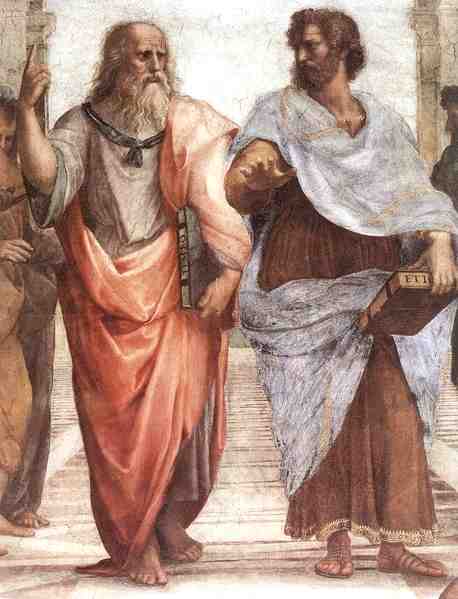But I strongly suspect that is because Aristotle’s words (e.g. four causes) have been massaged to fit a modern view of science when he was actually almost entirely in sync with Plato.
One of those posters routinely posted a work of art which had Plato pointing up and Aristotle pointing down:

In an article on parallel universes, physicist Max Tegmark described the difference in paradigms this way:
A mathematical structure is an abstract, immutable entity existing outside of space and time. If history were a movie, the structure would correspond not to a single frame of it but to the entire videotape. Consider, for example, a world made up of pointlike particles moving around in three-dimensional space. In four-dimensional spacetime — the bird perspective — these particle trajectories resemble a tangle of spaghetti. If the frog sees a particle moving with constant velocity, the bird sees a straight strand of uncooked spaghetti. If the frog sees a pair of orbiting particles, the bird sees two spaghetti strands intertwined like a double helix. To the frog, the world is described by Newton’s laws of motion and gravitation. To the bird, it is described by the geometry of the pasta — a mathematical structure. The frog itself is merely a thick bundle of pasta, whose highly complex intertwining corresponds to a cluster of particles that store and process information. Our universe is far more complicated than this example, and scientists do not yet know to what, if any, mathematical structure it corresponds.
The Platonic paradigm raises the question of why the universe is the way it is. To an Aristotelian, this is a meaningless question: The universe just is. But a Platonist cannot help but wonder why it could not have been different. If the universe is inherently mathematical, then why was only one of the many mathematical structures singled out to describe a universe? A fundamental asymmetry appears to be built into the very heart of reality.
And why are things the way they are, and not some other way?